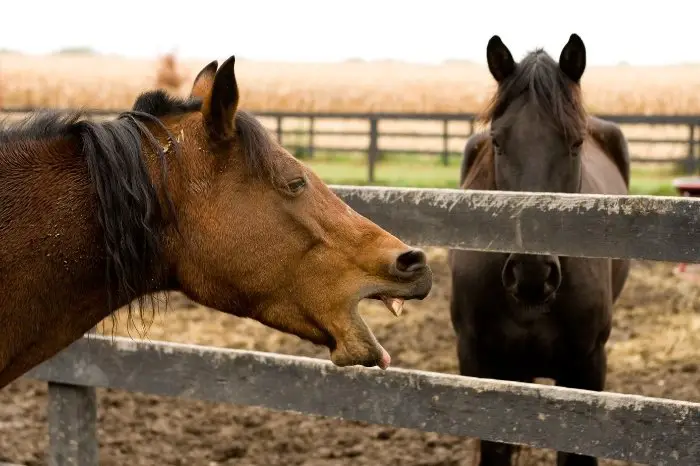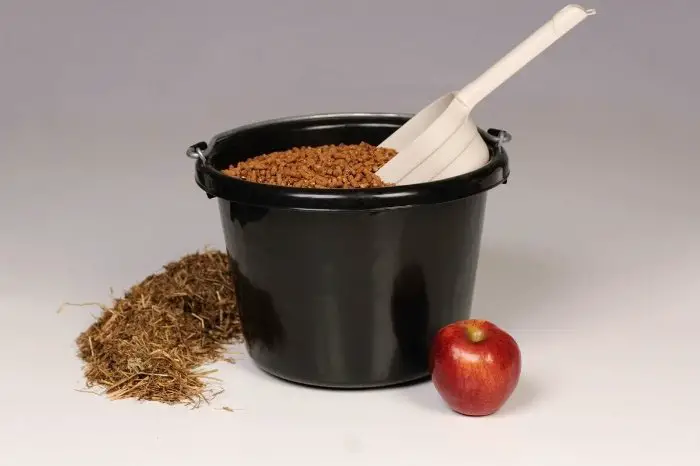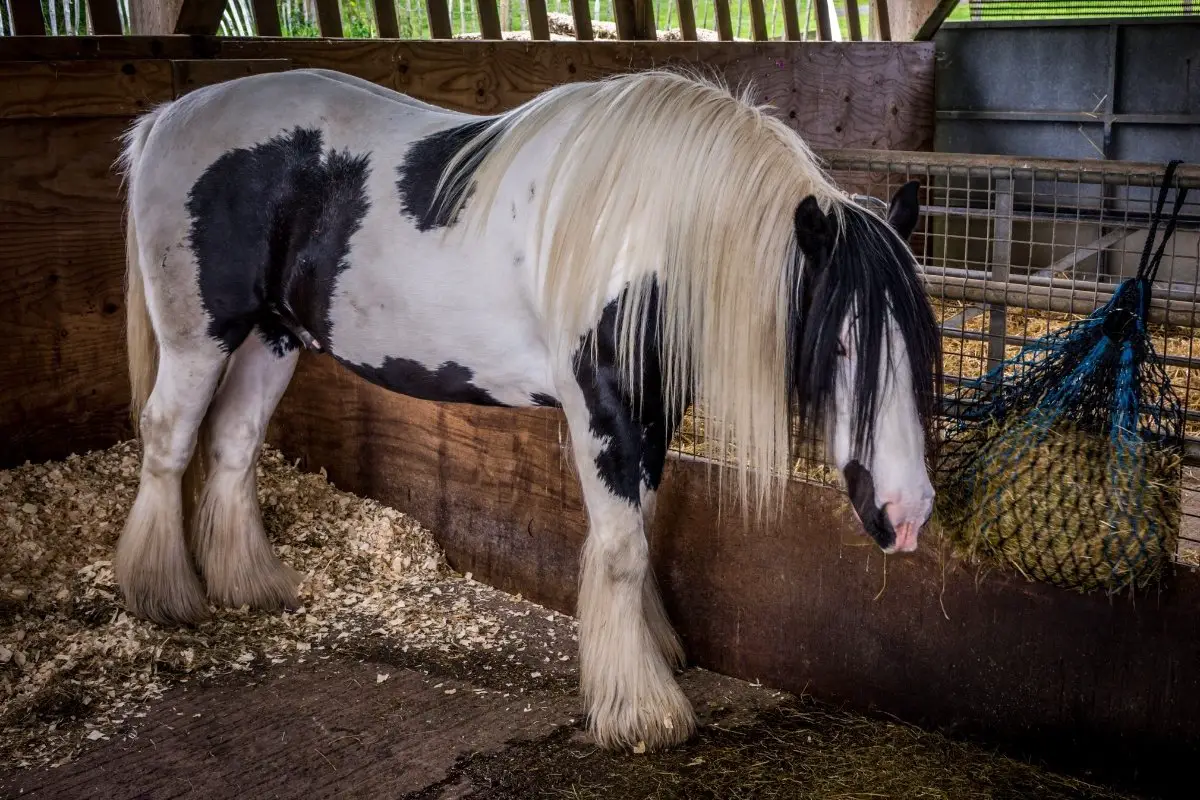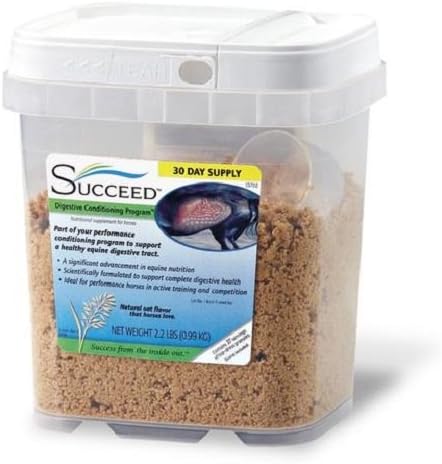Last Updated on April 26, 2022 by Fabiola L.
Getting an answer to “Can Horses Puke?” This is one thing a horse rider or owner will appreciate.
As a person working with horses, it is extremely important to familiarise yourself with the signs and symptoms of illnesses and diseases of horses, thereby ensuring a prompt call to the Veterinarian.
Puking is the body’s way of defending itself against toxic elements and substances that could cause harm to the gastrointestinal tract. Puking is the involuntary expulsion of stomach content caused by the involuntary contraction of the abdominal muscles when the sphincters of the esophagus relax. Puking is common to both humans and animals.
In this article, we will answer the question “can horses puke?” And help you understand the reasons for such answers.
Can Horses Puke? – What You Need To Know
The Horse has unique characteristics that set them apart from other animals. These characteristics are why we love and adore them so much. One of these characteristics is their inability to puke and understanding this can make a huge difference in life and death for your equine friend. Understanding a horse’s digestive system is one of those areas you need to familiarise yourself with. Many people know the answer to the question “can horses puke?’ but don’t know why.
Due to the nature of the horse’s digestive system, it is nearly impossible for a horse to puke; and if they do, it is usually fatal. The strong lower oesophageal sphincter of a horse’s digestive system acts as a one-way valve, restricting the movement of food from the stomach upwards.

As mentioned earlier, puking is made possible by the involuntary contraction of the muscles of the stomach. In horses, this action is impossible as their abdominal muscles are located around the rib cage, making it impossible for them to contract.
The stomach of the horse also narrows at various locations. This increases the risk of impaction and choking in extreme cases where the horse is puking. It also increases the risk of blockage by stomach contents, especially dense plants/grasses the horse must have ingested.
The Danger Of Horses Puking
Now that you know the answer to the question “Can Horses Puke?”, it is necessary to know why it is dangerous for horses to puke.
Inability To Expel Toxic Elements – Can Horses Puke?
In the introductory part of this article, I mentioned that puking is a defense mechanism the body uses to get rid of toxic elements and substances that can harm the digestive system. Horses are unable to get rid of these toxic elements by way of puking and if at all they puke, it will be extremely fatal.
Other animals such as the dogs and cats can even be given substances to assist them in puking and thus getting rid of injurious substances that might have been ingested, but the horse is incapable of this. These injurious substances will thus remain in the system, wreaking havoc and causing pain to your horse. An example of such pain is called colic – a severe digestive disorder of horses usually characterized by abdominal pains. In such cases, prompt veterinary attention is needed.
Choking Hazards – Can Horses Puke?
When I choke, I find all means possible to puke, and it is usually a great relief. Other animals like dogs and cats also use puking to recover when they choke. Horses however do not have this luxury. This makes it difficult to know when your horse is choking and when to offer help.
However, a choking horse will be depressed, refuse to eat, and will appear weak. It is important to look out for excessive stretching and straining of the neck by your horse. If you feel your horse is choking, remove any form of feed and call for your veterinarian immediately.
Have you Wondered: Can Horses Eat Whole Apples?
When To Look For A Veterinary
However, there are various principles that come in handy and serve as alternatives to eliminate specific disorders of the digestive system of horses.
Veterinary intervention usually involves eliminating the cause of the disorder or the injurious substance. This may include antidotes for the toxins, antibiotics to cater to secondary bacteria infections/bacterial diseases, and surgery to correct displacements or defects.
Increasing intestinal motility of the horse through the use of medications may promote a fast evacuation of any toxic elements your horse must have ingested.
In cases where the horse’s abdomen becomes bloated as a result of the injurious substance, a stomach tube can be used to relieve distention. Surgery is also an option when it comes to the relief of bloat due to toxins and gas in horses.
UltraCruz Succeed Digestive Conditioning Supplement 30 Day 30DAY
Taking Care Of Your Horse’s Digestive Tract
Answering the “Can horses Puke?’ The question has been fulfilling so far right? In order to avoid puking hazards and conditions of the digestive tract in horses, you might want to keep the following tips handy:
-
Dietary Supplements
In order to provide your horse with the appropriate amount of nutrients that might not have been acquired from grasses and meals, add supplements to your horse’s meal. There are a wide variety of supplements available but ensure to consult with your Veterinarian.
-
Be Watchful
As an equestrian, you should be familiar with signs of discomfort in horses. This will enable you to call for help appropriately. A loss of appetite, Stretching, pawing, resistance to exercise, agitation, and a change of attitude may indicate intestinal disturbances. Your role as a horse lover or owner is to observe and offer help when to your equine friend when necessary.
-
Eliminate Toxic/Injurious Substances
Being a responsible owner involves the removal of harmful substances from the stables of your equine friend. Certain plants, objects, and even some treats should be kept out of the reach of your horses.
-
Appropriate Feeding
Providing your horse with the right amount of feed at the appropriate time goes a long way in improving the digestive health of your horse. Low Starch Horse Feed Comparison – Which Is The Best Feed For Your Horse? A sudden change in the feeding routine and the feed you offer your horse may result in digestive disturbances. Consult with your Veterinarian on the right practice when it comes to feeding your horse.

Conclusion – Can Horses Puke?
Timely intervention is necessary with digestive issues and general health care in horses. As a Veterinarian, I have experienced a fair share of infections and injuries in horses and it is heartbreaking to see. It is exciting to know that you got an answer to the question “can horses puke?” And various others you may have had in relation to their digestive tract. The trick is to be aware of the signs of distress and be able to provide care until Veterinary help arrives.
FAQ’s
What happens if a horse vomits?
If and when your horse throws up, please contact your veterinarian immediately. Your horse is in critical condition and could die. Extreme pressure build-up might cause a horse to vomit and this can be accompanied by a tear in the digestive tract.
Why do horses vomit through nose?
Horse owners often notice slimy food-filled stuff coming out of the nose of their horses. This happens when the horse overeats and cannot swallow anymore. Food also pushes back through the nose if a horse is choking, this can also lead to food-based pneumonia.
Can a horse regurgitate?
While the horse does not have the means to puke, it also cannot regurgitate except that is in its esophagus.
Learn more about How Much Does A Horse Heart Weigh? -Facts You Need To Know!

